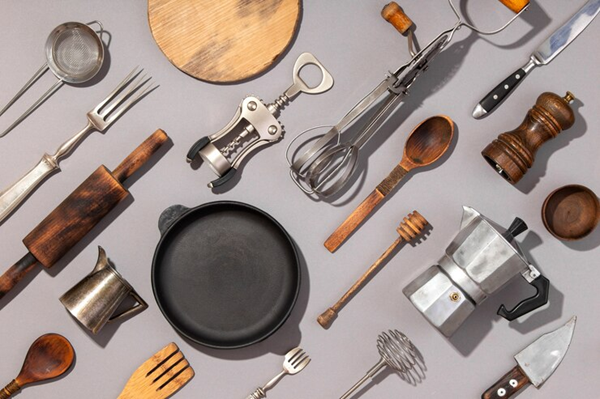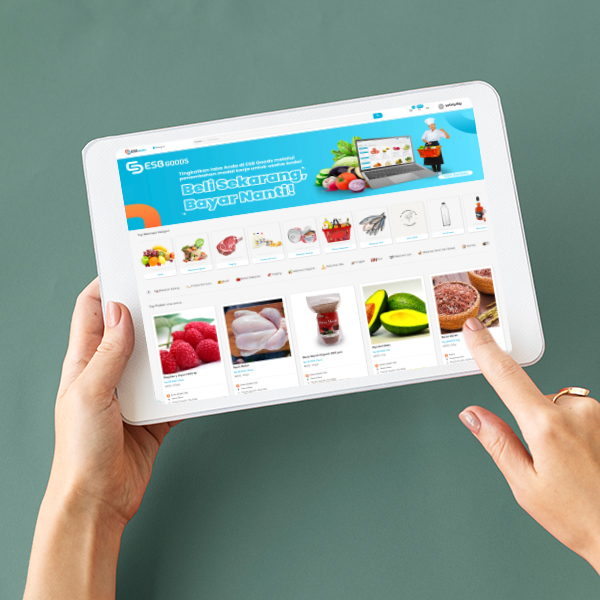 SHARE
SHARE
Business Opportunity: Become a Culinary Supplier (3 Success Tips!)

Business Opportunity: Become a Culinary Supplier (3 Success Tips!)
Being able to spot business opportunities is a crucial talent for any entrepreneur. This talent becomes invaluable when applied to finding gaps in Indonesia's culinary industry.
Why Explore Opportunities in the Culinary Industry?
The culinary industry is growing steadily, even during the COVID-19 pandemic, with a projected annual growth rate of 14.06% over the next five years. By 2020, there were over 11,000 culinary businesses in Indonesia, with 70% being restaurants and the rest including catering and other services. The competition is fierce, but there's a lucrative opportunity in becoming a supplier for this industry, providing essential raw materials or equipment to restaurants, cafes, coffee shops, and more.
Types of Supplier Opportunities in the Culinary Business
1. Supplier of Raw Materials

Sumber: Freepik
Essential raw materials like vegetables, meat, eggs, flour, rice, cooking oil, and spices are always in demand. Every culinary business needs these daily. If you become a supplier of even one of these items, you’ll have regular, large orders. Besides raw materials, you can supply semi-processed goods like instant noodles, sauces, and other ingredients, which often sell at higher prices due to their added value.
2. Supplier of Dining and Kitchen Equipment

Sumber: Freepik
When you dine at a restaurant, every utensil, plate, and piece of kitchen equipment comes from a supplier. Becoming a supplier of dining and kitchen equipment can be a promising business opportunity, especially with the rise of culinary SMEs. Though it requires more capital, the demand is consistent and growing.
Media for Suppliers and Culinary Entrepreneurs

Sumber: ESB
Suppliers range from large-scale operations to small businesses. If you’re just starting, don't be discouraged. Finding the right platform and strategy is key. ESB, a leader in integrated restaurant technology, offers ESB Goods—a marketplace connecting culinary businesses with suppliers for seamless transactions. ESB Goods also features a Close Loop System, ideal for franchise businesses to maintain product quality by sourcing from consistent suppliers.
3 Tips for Becoming a Successful Supplier in the Culinary Industry
1. Ensure Product Quality and Warehouse Stock

Sumber: Freepik / DCStudio
Maintaining the quality of raw materials, especially perishable ones, is crucial. Proper storage and distribution systems are essential to keep products fresh. Regular quality checks and efficient stock management ensure you meet market demands without compromising quality.
2. Build Long-Term Relationships

Sumber: Freepik / Yanalya
Having a network of culinary businesses makes it easier to start as a supplier. Offer superior partnership agreements compared to other suppliers to win over business owners. Long-term relationships build trust and dependency, leading to consistent business. Reward your loyal customers with competitive prices, discounts, bonuses, or special services.
3. Innovate Your Services

Sumber: Freepik / Rawpixel
Cater to specific requests, like supplying only chicken breasts and thighs, and find ways to utilize the rest of the product for other clients. Innovation isn’t limited to product offerings but extends to unique marketing strategies and improved customer service. Always seek feedback to enhance your services.
Spotting opportunities and taking advantage of them is essential for any businessperson. Becoming a supplier in the culinary industry is a promising and long-term business venture. Don't miss out on this opportunity!
 SHARE
SHARE





